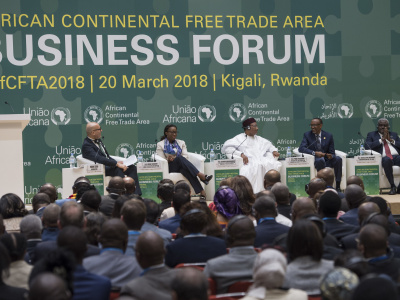
Making it count: Civil society engagement in EU trade agreements
Nadia Ashraf and Jeske van Seters provide concrete recommendations on how to enhance civil society engagement in EU free trade agreements to promote their sustainability dimensions.
Summary
A reform of civil society engagement in EU free trade agreements (FTAs) is necessary and particularly timely with the recently launched review of EU’s trade policy.
Civil society can contribute towards promoting sustainability dimensions of FTAs between the EU and other countries. Domestic Advisory Groups (DAGs) and joint civil society meetings were established to do just that. However, given the lack of substantial outcomes, civil society actors and other stakeholders are increasingly critical of the usefulness of these mechanisms. There is a crucial need to justify the investment made towards civil society mechanisms in EU FTAs to ensure continued participation.
The paper provides concrete recommendations to enhance the effectiveness and added value of DAGs and joint civil society meetings. DAGs should be strengthened to improve their ability to monitor sustainability aspects of FTAs and to influence trade policy measures. To do so, here are some of the recommendations presented in the paper:
- Strengthen efforts to identify and monitor concrete trade and sustainable development priorities.
- Ensure that civil society mechanisms have a sustainable stream of resources.
Create transparent and structured channels for civil society to interact with government entities. - Enhance synergies with development cooperation instruments – including civil society roadmaps – that can reflect commitments to support non-state actor engagement in EU trade agreements with certain low- and middle-income countries.
These, and other measures highlighted in the paper, can empower civil society actors to promote sustainability dimensions of trade agreements more effectively, thereby proving the added value of investing in civil society mechanisms in EU FTAs.





